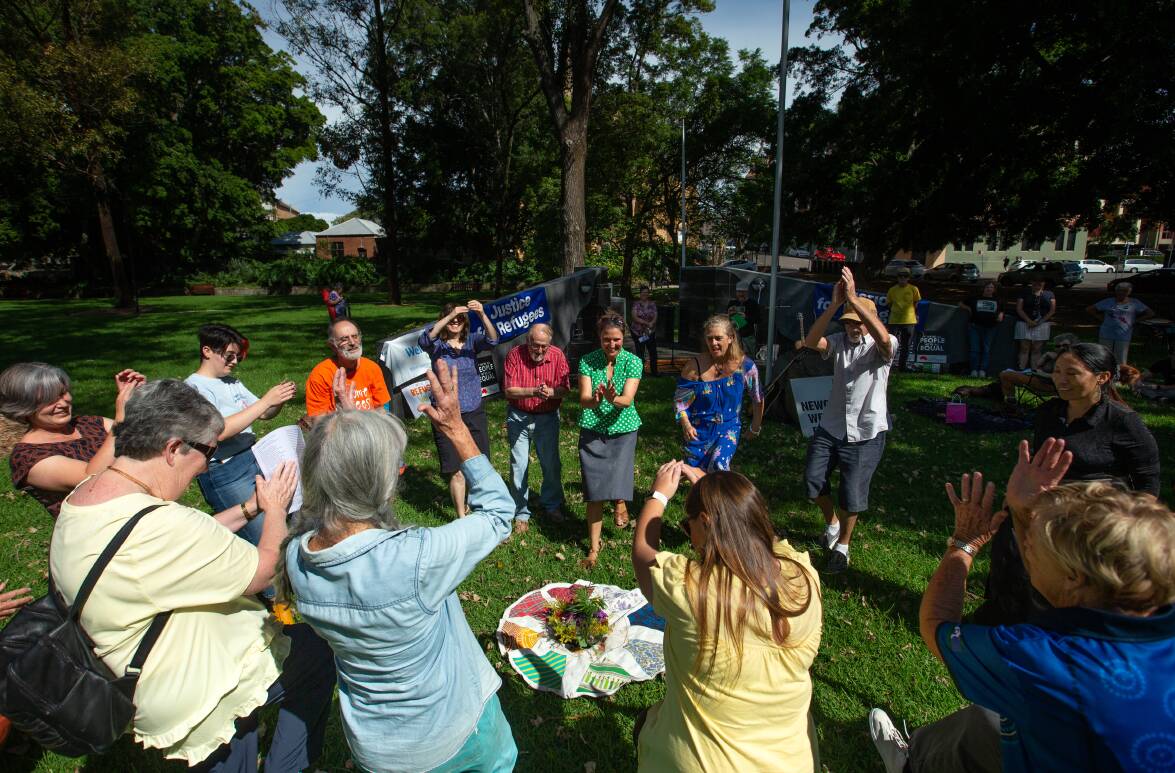
Calls for peace, opposition to conflict with China and justice for refugees were highlighted at an event in Newcastle on Sunday.
It was one of 20 Palm Sunday gatherings across the country that aired concerns about military spending and human rights.
Peace and refugee activist, Dr Niko Leka, said "we're opposed to AUKUS [the security pact between Australia, UK and US] and the drive to war with China".
"Recklessness, greed and a lust for power will destroy every living thing on this planet," Dr Leka said.
"We need many voices to stop this madness."
Hunter Peace Group secretary Lynda Forbes said Australia's $368 billion nuclear-powered submarine deal with the US could be better spent on housing, health, education and NDIS.
Ms Forbes said the federal government appeared to be "gung-ho about becoming a highly militarised and nuclearised country".
She said the submarine deal and $1.3 billion Tomahawk cruise missile contract had been arranged "without any input from the people of this land".
On the treatment of refugees, Amnesty Newcastle convenor Kevin Sweeney said there had been "huge gains" in the last couple of years, but "still a lot of injustices that need righting".
Mr Sweeney was pleased about the end of "long-term detention of refugees in hotel prisons and acceptance of the New Zealand offer to resettle some refugees".
He added that a process had been created for "19,000 refugees who have been living in the community on temporary visas to gain permanent visas".
This had provided certainty, allowing them to "build a new life in Australia".
But about 130 refugees had been trapped in PNG and Nauru for 10 years.
"Holding them there is seriously harming their mental and physical health," he said.
"This is a disgrace and it needs to end. The solution is straightforward - bring them here to Australia while awaiting resettlement and provide them with the medical care that they need. The only obstacle to this is Australian domestic politics."
He added that 1100 refugees previously brought to Australia from PNG and Nauru remain in limbo on three-month or six-month bridging visas.
And more than 9000 people, who had sought asylum in Australia, had been denied protection under the "seriously flawed and unjust 'fast track' assessment process".
Mr Sweeney, who is also Amnesty's NSW regional president, said "Australia can and must do better".
The Australian Refugee Action Network spokesperson, Emeritus Professor John Minns, said the federal government should "abolish the fast track system and replace it with a fair and just system".







